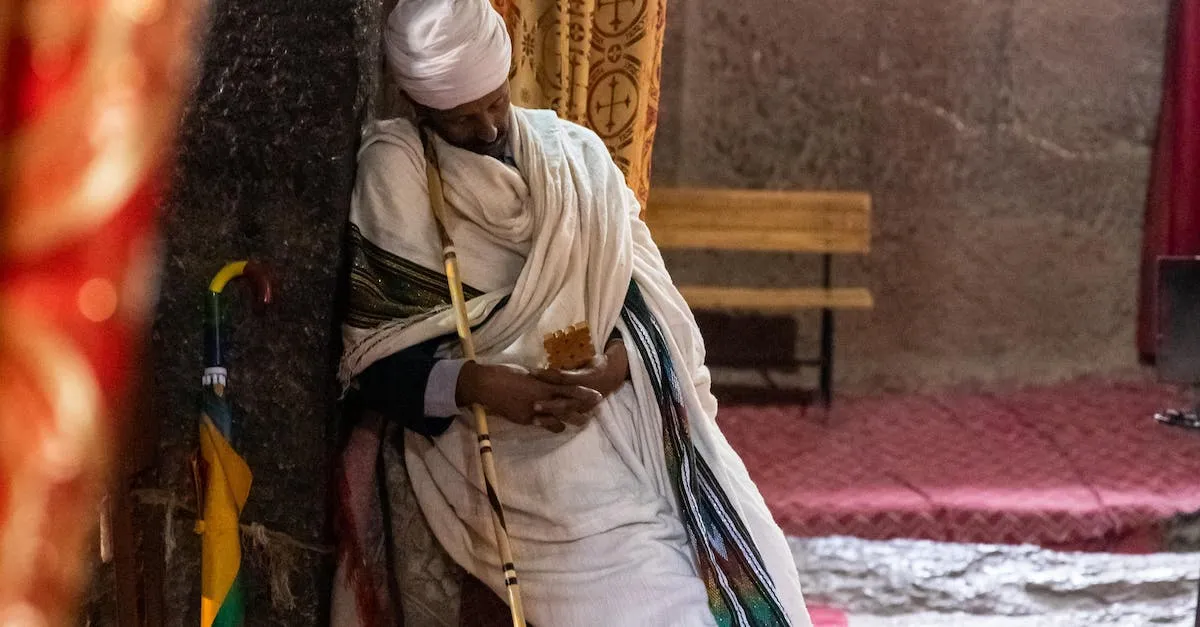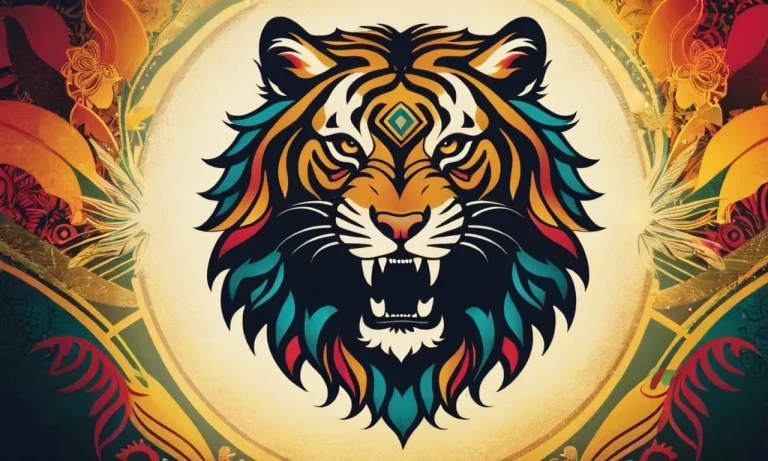Is Lebanon A Christian Country? Examining Its Religious Identity
With its diverse mix of faiths, Lebanon’s religious identity defies easy categorization. Christians, Muslims, Druze and other groups have coexisted there for centuries, creating a multifaceted culture. Given this complexity, is Lebanon a Christian nation?
If you’re short on time, here’s a quick answer to your question: While Lebanon has a significant Christian population and heritage, it is not officially a Christian country. Lebanon has no state religion and is governed as a parliamentary republic.
In this approximately 3000 word article, we’ll explore Lebanon’s demographics, history, laws, politics and culture to analyze its religious identity and the role Christianity plays in modern Lebanese society.
Christian Population Statistics
When examining Lebanon’s religious identity, it is important to consider the statistics regarding its Christian population. While Lebanon is often referred to as a Christian country, the reality is more nuanced.
Percentage of Christian denominations
Lebanon is home to a diverse range of Christian denominations, each with its own unique traditions and beliefs. According to the most recent data, the Christian population in Lebanon is estimated to be around 33% of the total population.
Among the Christian denominations in Lebanon, the Maronite Catholics are the largest group, accounting for a significant portion of the Christian population. Other prominent Christian denominations in Lebanon include the Greek Orthodox, Melkite Catholics, Armenian Apostolic, and Protestant communities.
It is worth noting that the percentage of each Christian denomination can vary depending on the source of information, and there may be slight discrepancies in the data. However, it is generally accepted that Christians make up a significant minority in Lebanon.
Decline of Christian majority over time
While Lebanon was historically known for its Christian majority, there has been a noticeable decline in recent decades. This decline can be attributed to various factors, including emigration, lower birth rates among Christian communities, and political and social changes.
In the mid-20th century, Christians constituted a clear majority in Lebanon. However, due to various internal and external challenges, the demographics of the country have shifted over time. Today, Lebanon is characterized by a diverse religious landscape, with Christians, Muslims, and other religious communities coexisting.
The decline of the Christian majority in Lebanon has sparked debates and discussions about the country’s religious identity. Some argue that Lebanon should maintain its Christian heritage and identity, while others emphasize the importance of religious diversity and inclusivity.
It is important to note that Lebanon’s religious landscape is complex and cannot be reduced to simple statistics. The country’s history, culture, and politics all play a role in shaping its religious composition.
Understanding these dynamics is crucial for a comprehensive understanding of Lebanon’s religious identity.
To explore more about Lebanon’s religious demographics, you can refer to the official website of the Lebanese Ministry of Interior (www.interior.gov.lb) or the Pew Research Center’s report on religion in Lebanon (www.pewforum.org).
Christian History and Heritage
Lebanon, often referred to as the “Switzerland of the Middle East,” is known for its diverse religious landscape. While it is true that Lebanon is home to a significant Christian population, it is important to understand the historical roots and heritage of Christianity in the country.
Roots of Christianity in Lebanon
The history of Christianity in Lebanon dates back to the time of Jesus Christ. According to biblical accounts, Jesus and his apostles visited the region, spreading the teachings of Christianity. Lebanon, being a part of the Levant, played a crucial role in the early development and spread of Christianity.
The followers of Jesus in Lebanon, known as Maronites, were among the first Christians in the region. The Maronite Church, which has its origins in the 4th century, is an Eastern Catholic Church in full communion with the Pope in Rome.
The Maronite Christians have played a significant role in shaping Lebanon’s religious and cultural identity.
Relics, Monasteries, and Pilgrimage Sites
Lebanon is home to numerous religious relics, monasteries, and pilgrimage sites that attract both Christians and tourists from around the world. One of the most notable sites is the Holy Qadisha Valley, also known as the Valley of the Saints.
This valley is recognized as a UNESCO World Heritage site and is home to several ancient monastic communities.
The Monastery of Saint Maron in Annaya is another important pilgrimage site for Maronite Christians. It is the final resting place of Saint Charbel, a revered saint known for his miracles and spiritual wisdom.
Every year, thousands of pilgrims visit the monastery to pay their respects and seek blessings.
Other significant religious sites include the Our Lady of Lebanon Shrine in Harissa, which overlooks the city of Jounieh, and the Cave of Saint Maron in Batroun. These sites serve as important symbols of Lebanon’s Christian heritage and are a testament to the country’s rich religious history.
Role of Maronite Catholics
The Maronite Catholics, who are the largest Christian sect in Lebanon, have played a vital role in shaping the country’s political and social landscape. They have been influential in Lebanon’s governance, with the Lebanese president traditionally being a Maronite Christian.
Maronite Catholics have also contributed significantly to Lebanon’s education, healthcare, and cultural sectors. Many prominent Lebanese universities, hospitals, and cultural institutions were established by Maronite communities.
Their contributions have helped foster a sense of unity and resilience among Lebanon’s diverse religious communities.
Secular Government and Laws
Lebanon is known for its unique political landscape, which includes a secular government and laws that promote religious freedom. Unlike many countries with an official state religion, Lebanon does not have one.
This means that the government does not favor or promote any particular religion, allowing for a diverse and pluralistic society.
No official state religion
Unlike some countries where a specific religion is declared as the state religion, Lebanon takes a different approach. The absence of an official state religion allows for a more inclusive society, where individuals are free to practice their own religious beliefs without interference from the government.
This is an important aspect of Lebanon’s commitment to religious freedom and tolerance.
Constitutional religious freedom
The Lebanese Constitution guarantees religious freedom to all its citizens. Article 9 of the Constitution states that “freedom of belief is absolute” and that “the state shall respect all religious denominations and ensure their protection.”
This constitutional provision ensures that individuals have the right to practice their religion freely and without discrimination.
Lebanon’s commitment to religious freedom is also reflected in its legal framework. The country has laws that protect religious minorities and ensure their rights are upheld. For example, Lebanese law recognizes 18 different religious sects and provides specific protections for each of them, including the right to establish and maintain their own religious institutions.
Political power-sharing model
One of the unique aspects of Lebanon’s secular government is its political power-sharing model. The country’s political system is based on a delicate balance of power between different religious communities.
This model, known as confessionalism, ensures that different religious groups are represented in the government and have a say in the decision-making process.
Under this power-sharing model, the president must be a Maronite Christian, the prime minister a Sunni Muslim, and the speaker of parliament a Shia Muslim. Additionally, parliamentary seats are allocated based on religious affiliation, ensuring proportional representation for different religious communities.
This political power-sharing model aims to maintain harmony and prevent any one religious group from dominating the political landscape. It is a unique aspect of Lebanon’s governance system that reflects the country’s commitment to religious diversity and inclusivity.
Christian Influence in Culture
Lebanon’s rich religious diversity has shaped its cultural landscape in many ways. While Lebanon is often referred to as a “Christian country,” it is important to note that it is a multi-religious society with a significant Christian population.
Christianity has had a profound impact on various aspects of Lebanese culture, including arts, literature, philosophy, festivals, holidays, cuisine, music, and media.
Impact on arts, literature, and philosophy
The Christian influence on arts, literature, and philosophy in Lebanon is undeniable. Throughout history, Christian thinkers, writers, and artists have made significant contributions to the country’s cultural heritage.
From renowned authors like Khalil Gibran, whose works have resonated with readers around the world, to influential philosophers like Charles Malik, Lebanon has produced many great minds whose Christian faith has played a central role in shaping their artistic and intellectual expressions.
Christianity, with its emphasis on love, compassion, and the search for truth, has often served as a source of inspiration for Lebanese artists and writers. Whether it is through religiously themed paintings, poetry, or novels, the Christian worldview has influenced the creative output of many Lebanese artists, adding depth and meaning to their work.
Christian festivals and holidays
Lebanon’s Christian population celebrates a variety of festivals and holidays that hold great cultural significance. Christmas and Easter, two of the most important Christian holidays, are widely celebrated across the country.
These festivities bring people together, regardless of their religious affiliations, to commemorate the birth and resurrection of Jesus Christ.
During Christmas, the streets of Lebanon are adorned with colorful decorations, and nativity scenes are displayed in churches and public spaces. Families gather to exchange gifts and share festive meals, creating a warm and joyful atmosphere.
Similarly, Easter is a time of reflection and renewal, with church services, processions, and family gatherings marking the occasion.
Cuisine, music, and media
The Christian influence on Lebanese cuisine, music, and media is palpable. Traditional Lebanese dishes, such as kibbeh, tabbouleh, and falafel, are enjoyed by people of all backgrounds. These dishes have been shaped by various culinary traditions, including Christian influences, resulting in a unique fusion of flavors that is loved by many.
Christian music has also played a significant role in Lebanese culture. From hymns sung in churches to contemporary Christian songs performed by popular artists, music has been a way for Christians in Lebanon to express their faith and connect with others.
Moreover, Christian media outlets, such as television channels and radio stations, have played a crucial role in shaping the cultural landscape of Lebanon. These platforms provide a space for Christian voices to be heard and contribute to the country’s diverse media landscape.
Challenges for Christians Today
Conflicts with Muslims and Druze
One of the major challenges faced by Christians in Lebanon today is the ongoing conflicts with Muslims and Druze communities. Lebanon is known for its diverse religious makeup, with Christianity being one of the major religions in the country.
However, tensions between different religious groups have led to occasional clashes and disputes. These conflicts often arise due to differences in religious beliefs, political ideologies, and territorial disputes.
It is important for the government and religious leaders to promote tolerance, understanding, and peaceful coexistence among all communities in order to address these challenges and ensure harmony in Lebanon.
Emigration and declining regional influence
Another challenge for Christians in Lebanon is the increasing rate of emigration and the subsequent decline in their regional influence. Many Christians, faced with economic difficulties, political instability, and limited opportunities, have chosen to leave the country in search of better prospects elsewhere.
This mass emigration has resulted in a decrease in the Christian population, which in turn affects their representation in various sectors, including politics, business, and cultural affairs. It is crucial for the Lebanese government and society to create an environment that encourages Christians to stay and contribute to the development of the country.
Political instability and terrorism
Lebanon has been plagued by political instability, which has had an impact on the Christian community. The country has experienced periods of political turmoil, including civil wars and external interventions, which have left deep scars on its social fabric.
Additionally, the rise of terrorism in the region has further exacerbated the challenges faced by Christians in Lebanon. Terrorist groups have targeted Christians and their religious institutions, leading to fear and insecurity among the community.
It is essential for the government to ensure security and stability in order to protect the rights and safety of all religious groups in Lebanon.
Despite these challenges, Christians in Lebanon have shown resilience and determination to preserve their religious identity and contribute to the development of the country. Efforts are being made to promote interfaith dialogue, strengthen social cohesion, and address the root causes of conflicts.
It is necessary for the international community to support Lebanon in its efforts to overcome these challenges and build a more inclusive and peaceful society.
Conclusion
While Christianity undeniably shaped Lebanon’s history and culture, the country has a complex religious identity. Christians made up a majority historically but now share power with Muslims and other groups.
Lebanon’s diversity, secular laws and contentious sectarian politics make simplistic classifications difficult. However, Christianity maintains a strong cultural legacy there even today.








